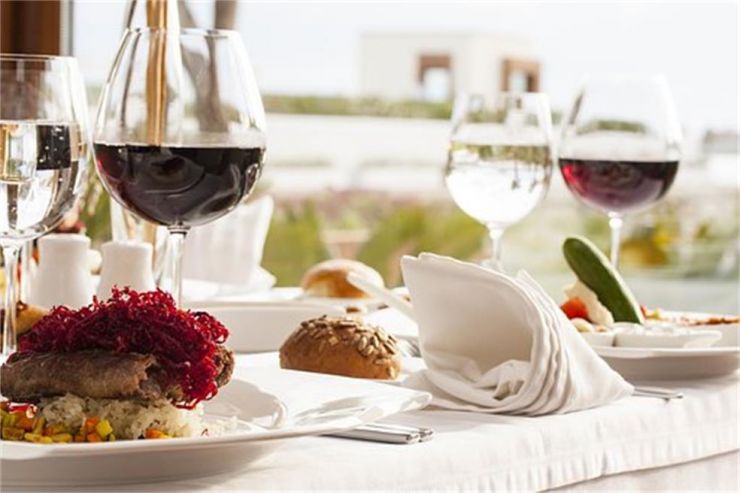The Restaurant Wine Tasting Ritual
(Is the Wine Corked?)
You’ve seen the scenario so many times in a restaurant…the waiter opens the bottle of wine, presents the cork to the customer and pours a small taste of the wine into the customer’s glass. The customer then picks up the glass of wine, maybe swirls it around a bit and sniffs into the glass, tastes the wine and finally indicates acceptance (usually) or not.
What should I know about tasting wine in a restaurant?
When asked to taste wine at a restaurant, your job is to determine just one thing – is the wine fit for human consumption?
There are two things that can make a wine unfit for human consumption:
- the wine is spoiled
- the wine is “corked”
Wine spoils due to faulty production
A wine can be spoiled by faulty production. Faulty production may come in the form of bacteria introduced into the wine due to an unsanitary production environment or lack of a proper amount of preservative (sulfite is a commonly used preservative in the production of wine, whereby the amount of sulfite used depends on the type (red or white) and composition (acidity, sweetness) of wine).
Wine spoils due to improper storage
An otherwise good, healthy wine stored in a hot, dry, brightly illuminated and/or vibrational environment may become spoiled.
Wine not stored on its side may spoil
A wine not stored on its side may spoil. The reason a waiter or sommelier hands you the cork after opening a bottle of wine is to allow you to see that the cork is wet and/or stained by the wine. This is an indication that the wine has been stored properly on its side.
When a bottle of wine has been stored properly on its side, wine has been continuously in contact with the cork. This contact with the (liquid) wine expands the cork to provide a proper seal on the bottle of wine. A proper seal on the bottle prevents the introduction of external bacteria into the bottle, as well as oxidation of the wine by surrounding air.
Spoiled wine is not a healthy drink
A spoiled wine will taste sour and/or rotten and is not a healthy drink. When you encounter a spoiled wine, there is no ambiguity. You will want to expel it from your mouth.
However, it is relatively rare that you will encounter a spoiled wine.
A corked wine is safe but undesirable
Most often, the reason for refusing a wine is that the wine is “corked.” You can identify a corked wine both by its smell and taste. It will smell and taste musty. Some say that a corked wine is reminiscent of wet cardboard. But note that the corked taste is intermingled with the otherwise normal flavors of wine, so if a wine is only slightly corked, you may not be able to discern that it is corked. And does it really matter? Well, not really – a corked wine is not going to harm you. You’re just not going to experience the otherwise unadulterated taste of what the wine was intended to be.
TCA causes corked wines
So, what causes a wine to become “corked”? Well, it typically has something to do with the cork – so if the wine is in a bottle that has been sealed with a screw cap or a synthetic cork, the wine is much less likely to be corked.
Because cork is an organic substance (corks are extracted from the Cork tree), corks must be treated to remove potential biological organisms prior to the cork being inserted into a bottle of wine. This treatment comes in the form of TCA, an acid that is not harmful to humans but is deadly to the microorganisms living in cork.
Once the cork has been doused in TCA, it subsequently must be washed in water to remove all traces of the TCA prior to being inserted into a bottle of wine. If the TCA is not completely removed in the washing process, trace amounts of TCA on the cork will cause the wine to become “corked.”
Wines without corks can be corked
TCA also can be present in oak barrels or in the processing lines at the winery, so it is possible for a wine with a synthetic cork or a screw cap to be corked.
Why cork?
Now you might ask, “Why do we use real corks since they can cause a wine to become corked, and there are other options for sealing a bottle of wine?”
The simple answer is tradition and romance – for some of us, there’s just something authentic and special about dislodging a wooden cork from its protective perch atop that anticipated elixir that is wine!
"The intent is for the consumer to determine just one thing – is the wine fit for human consumption?"



